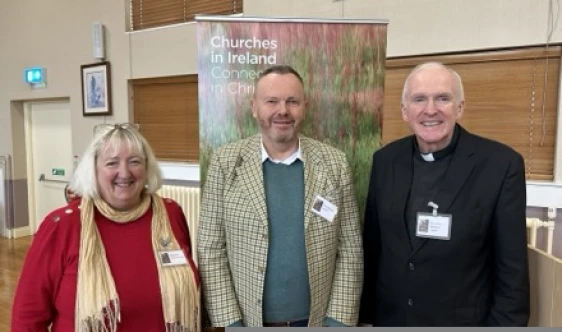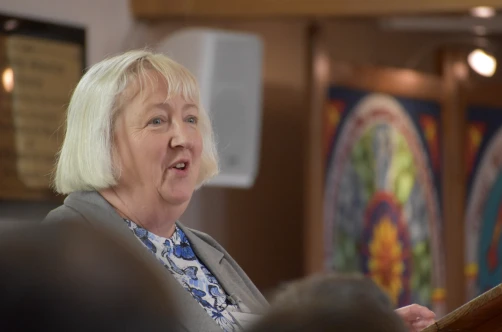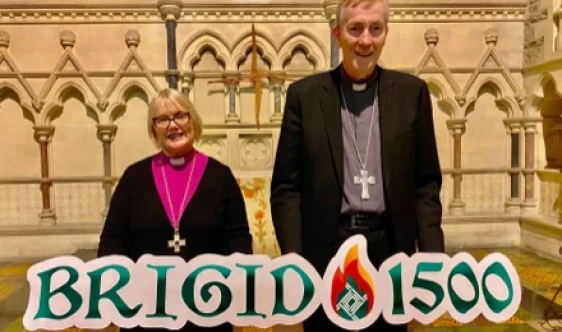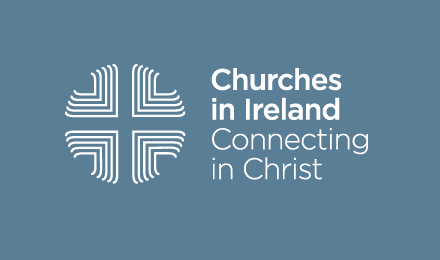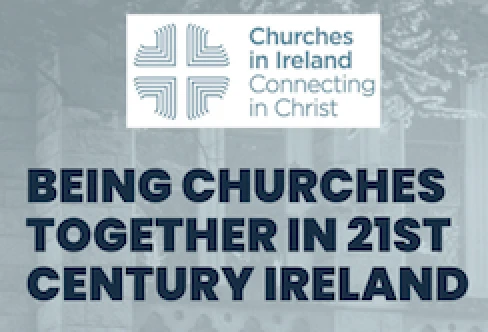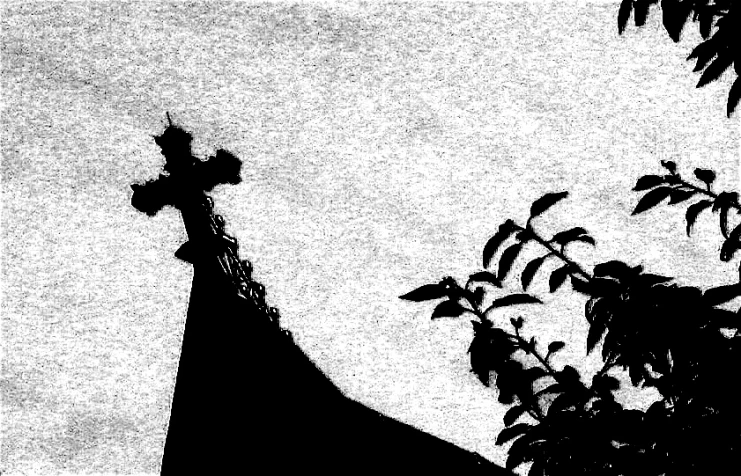
It was a great privilege to be invited to share in Derrygonnelly Church Forum’s activities in Good Relations Week 2018.
In my address I posed three questions. My first question is to the point: why is religion so associated with conflict? My second question is what happens to religion when it elides and overlaps with politics? Given that Northern Ireland represents a good example of this overlap, I want, thirdly, to ask what the churches can do next to help improve good relations in Northern Ireland?
My first question is one that puzzles most people. Why is religion associated with conflict?
This is so for many reasons. Religion inevitably discriminates between the righteousness of the ‘true believer’ and the unrighteousness of the rest. The ‘unbeliever’ is thought of as different. ‘True religion’ in this limited sense is always discriminatory. Religious difference does not have to cause conflict, but discrimination in belief and values can extend much further to result in unbelievers being treated differently rather than just thought of as different. Religion can facilitate the process of what sociologists call ‘othering’, the drawing of boundaries around those considered insiders and outsiders.
While these boundaries can remain exclusively moral, distinguishing between groups with different values and beliefs, the boundaries can also become social, political and economic. When this happens the religious ‘other’ is subjected to a system of structured disadvantage and discrimination.
Such systems of oppression are more likely to occur whenever religion and ethnic identity coincide, so that religion becomes associated with exclusive ethnic nationalism. In such circumstances religion can become wrapped up with both ethnic defence and ethnic expansionism, where religion is used by ethnic groups to defend their interests in a nationalist struggle of resistance or in nationalist expansion and colonialism. In these situations, combatants feel god to be solely on their side.
Throughout history therefore, there have been many examples of religious extremism, now popularly called ‘religious terrorism’, only the most recent expression of which is Islamic extremism. In the period of Europe’s Reformation and Counter–Reformation, roughly the 15th to the 18th centuries, for example, similar forms of religious violence which we condemn today were commonplace. The conviction of the religious untruth of others was pursued very violently, making religious intolerance rather than tolerance a virtue. For example, in the early modern period in Britain and its colonies, when religious conflicts were vivid, toleration was perceived pejoratively as a threat both to god and politics, since it reflected doubt in one’s own religious truths and uncertainty in government. Religious intolerance was culturally valued, legally enforced and violently enacted; some historians have referred to this as ‘charitable hatred’. This is quite the reverse to the way in which today we like to see religion as carrying the ethic of liberalism, pluralism and tolerance. In the past, religious toleration posed the same dilemmas and problems as religious intolerance does today.
Religious extremism is very rarely conducted under a fairness rule that respects the human dignity of others and treats unbelievers as moral beings. It is possible to tolerate ‘true religion’ when the limits of intolerance are defined by this fairness rule and religious believers do not morally enervate others and deny their humanity. Religion is not therefore inevitably extremist; the three Abrahamic faiths of Christianity, Judaism and Islam give considerable doctrinal support to peace, justice, reconciliation and tolerance. It is more often the case that political extremists use religion for political purposes, giving their conflicts a religious hue even when the substance of the conflict is deeply political because ‘true religion’ so easily mobilises zealous adherents.
Religion extremism is thus mostly a surrogate for political, social and ethnic conflicts that are not disputes over religious texts, rituals, symbols or practices. Religious violence is never just about doctrine. Religion occasioned and facilitated the violence, it did not cause it. It is for this reason that Karen Armstrong refers to religious violence as a myth; what is mythological is that it is religious in substance.
My second question follows on from the first. If religious conflict is mostly political not religious, what happens to religion when politics and religion elide? I suggest there are six problems that characterise religion in Northern Ireland that form a background to any advice I can offer to the churches.
First, there are hermeneutical problems: doctrine is given a political interpretation; politics shapes the canonical emphases; and there is also doctrinal excision, where politically inexpedient texts are omitted from mention.
Secondly, religion is politicised. Religion is used to provide the meaning, motive and moral justification of political action – whether it be apartheid, slavery, anti–Catholicism and sectarianism as examples.
Thirdly, the meaning of religion is distorted. Faith commitment is wrapped up with political loyalty as a form of cultural religion rather than personal faith. Religion is as much cultural and political identity as faith.
Fourthly, religion fragments. The chaos of political diversity affects the unity of religion as it fragments under denominational differences and schisms, which represent political differences as much as religious ones. The fragmentation of conservative evangelicalism fits this well.
Fifthly, religious spaces become divided and partisan: some religious spaces become out of bounds; and some religious spaces are never seen as neutral and above the fray. Each other’s churches can be seen as ‘roads to hell’.
Sixthly, and finally, religion becomes an obstacle to reconciliation not a facilitator, seen as part of the problem, not part of the solution.
In short politics corrupts religion when they overlap. Faced with this corruption my third question follows on naturally. What can the churches do next?
Part of the problem for the churches is that liberalisation and secularisation have lost them their monopoly of moral discourse. Their conservatism on social issues also places them in opposition to the majority of young people, the one sector they need to hang on to if they are to return to pre–eminence. And their failure to address the legacy issues of the conflict in the public realm, results in them being perceived as irrelevant to the issues that shape a society emerging out of conflict. Or at least, issues of forgiveness, mercy, justice, reconciliation and healing are treated by them as pastoral issues to be managed within their own congregation on an individual basis as they arise.
In the second part of this series, Prof Brewer will address the question of what the churches should do, as well as what they can do within the constraints of contemporary Northern Irish Politics.
